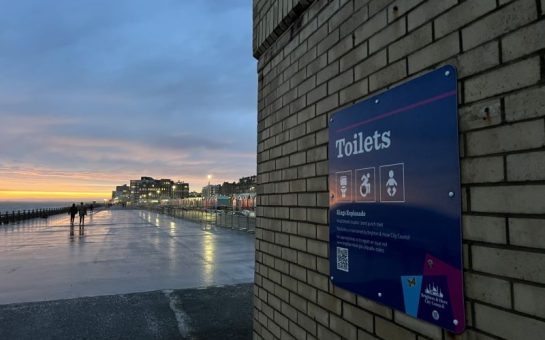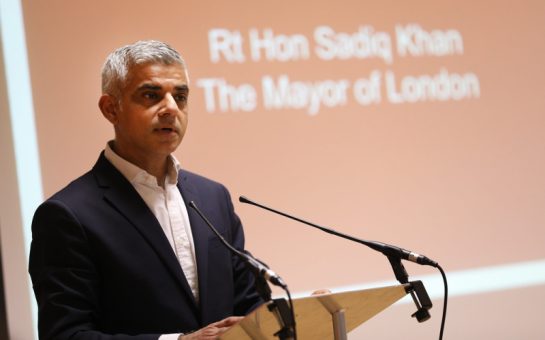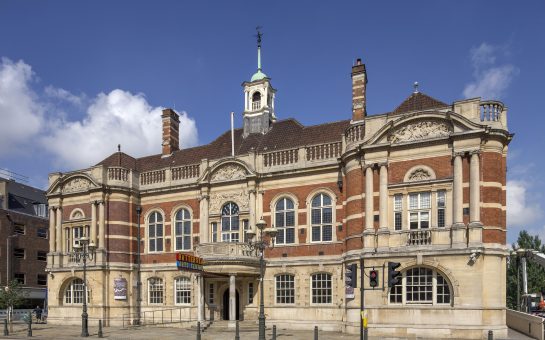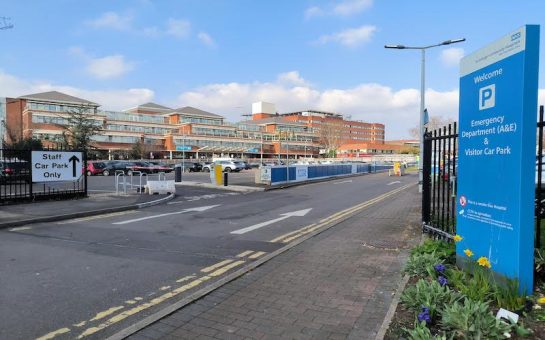Council election canvassing didn’t used to be popular in Wandsworth. In fact, it wasn’t popular in most places.
Yet on the morning of Saturday April 14, 150 people turned out to knock on doors for Labour ahead of the upcoming council elections on May 3.
That would have been unthinkable in 2014, when the council was last up for election. Experienced campaigners talk of the days when a turnout of 20 would have been worth celebrating.
But in this and other London boroughs, things have changed.
Co-organised by activist and journalist Owen Jones and the pressure group Momentum, the ‘Unseat’ campaign has become a lightning rod for left-wing democratic engagement across the country.
How you measure that change can depend on perspective. You can weigh it in the numbers of people giving up their weekends to campaign. You can also hear it in the stories they tell.
Like a lot of new recruits, Marlon Kameka, a 34-year-old model and youth dance teacher from Tottenham, didn’t used to be interested in politics. He was not a member of a party. He had neither canvassed, nor phone banked, never attended a local party meeting.
That all changed in 2017. Motivated by the general election and Jeremy Corbyn’s leadership of Labour, Marlon showed up to a Momentum activist training event in Tooting.
“I was a bit apprehensive. I was scared people would just slam the door in my face. But after the training I was like: ‘Cool, I’m ready for this,’” he said.
Since then, he hasn’t looked back.
He said: “During the general election I was out every day seeing what I could do, every day going to different parts of London. Since I joined I’ve done about 40 events.”
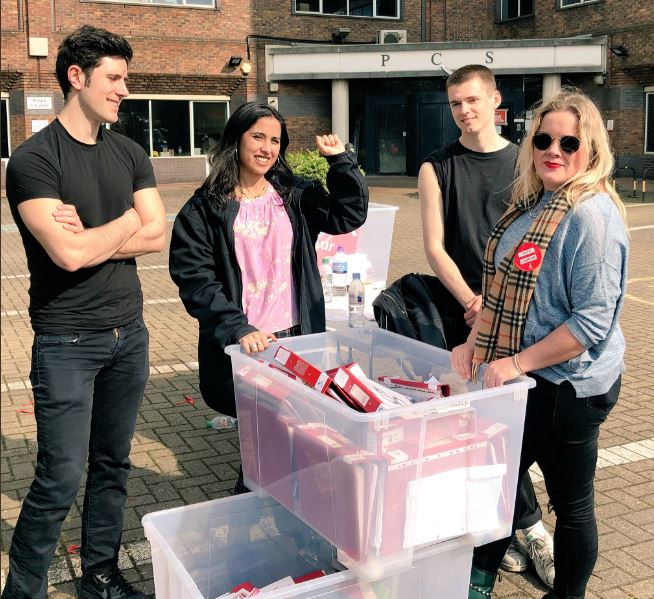
GATHERING MOMENTUM: Aydin Dikerdem, left, and volunteers after canvassing for Wandsworth Labour
Just how much of an impact this change is having on British politics will be measured on May 3, when Margaret Thatcher’s favourite council could become what Jones jokingly describes as ‘The Socialist Republic of Wandsworth’.
Although that may be taking things a little far. The local Labour party’s manifesto promises to freeze Tory council tax rates, already the second lowest in the country, for the next two years.
The real issue, say the Labour councillors and members on the ground, is housing.
“Last night 2,500 children slept in Wandsworth Council temporary accommodation because they are homeless,” said Simon Hogg, leader of Wandsworth Labour.
“In every primary school in the borough there are homeless children having to travel home to often unsuitable hostel and bed and breakfast accommodation.”
Which is, he said, what makes the regeneration of Battersea Power Station, part of the Nine Elms redevelopment, all the more galling.
“It’s a £9 billion scheme with only nine percent affordable housing,” said Hogg.
“The remaining affordable homes haven’t been built on the site itself but on an industrial estate half a kilometre down the road.”
Councillor Aydin Dikerdem, elected in 2016 aged 24, agreed: “The fact that not a single council home is being built on that site, when this is one the biggest regeneration projects in Europe, is an appalling waste of a massive opportunity.”
He pointed to the way in which money set aside for community benefit was spent on a new tube station that will help profit the project’s Malaysian developers.
Then there are the multi-million pound properties themselves, which have, so far, been sold mostly to overseas investors.
And then there are the council estates badly in need of regeneration.
Places like the Winstanley Estate, where fire residue marks the walls of a stairwell. Where young canvassers are told to knock quietly if they don’t want to be mistaken for a bailiff.
The estate has been earmarked for regeneration since 2013 and residents will be given homes in the new flats. However, despite a threefold increase in the number of houses, there will be just 100 additional council homes, as low as five percent of the more than 2,000 flats being built.
This in a borough where the number of homeless families has trebled in the last eight years, according to figures from Shelter.
Around the corner from the estate, Aydin’s partner Chloe Tomlinson, a primary school teacher, is leading a group of people around more affluent, colonially themed streets. Streets like Afghan Road and the gated off Zulu Mews.
They’re a rag tag bunch. There’s Burt the young political researcher from Alabama, Una and Heather – two older socialists from Camden, an art student called Leila, pony-tailed Craig who’s sporting a big red Momentum T-shirt and Hau-yu, a community worker wearing a giant stuffed anime character with Labour stickers on its ears.
Like nearly everyone canvassing that day, Chloe joined Labour because of Jeremy Corbyn. She saw in his policies a way to address the issues she faces in her school.
She talked of long hours and funding cuts. The stresses and strains of safeguarding children in a borough where children’s services are rated ‘inadequate’. The meetings with parents whose children are too sick from damp and mould in their bedrooms to go to school.
“You wish you could help them,” she said. “It’s frustrating that we live in a system where working class families aren’t being looked after.”
As we’re talking, a middle aged man in a gilet came by with his labrador.
“You lot, the hard left, will never get in,” he said.
It’s a common refrain. Seen regularly in the pages of newspapers, asserted by Labour and Conservative politicians alike.
But for Chloe, what motivates her isn’t coup plotting or Trotsky. It’s the shadow the Nine Elms development casts over the school playground.
“It’s got billions of pounds being poured into it and they’ve cut the affordable housing. Lots of children don’t have the housing that their family needs,” she said.
“It’s just so frustrating.”
